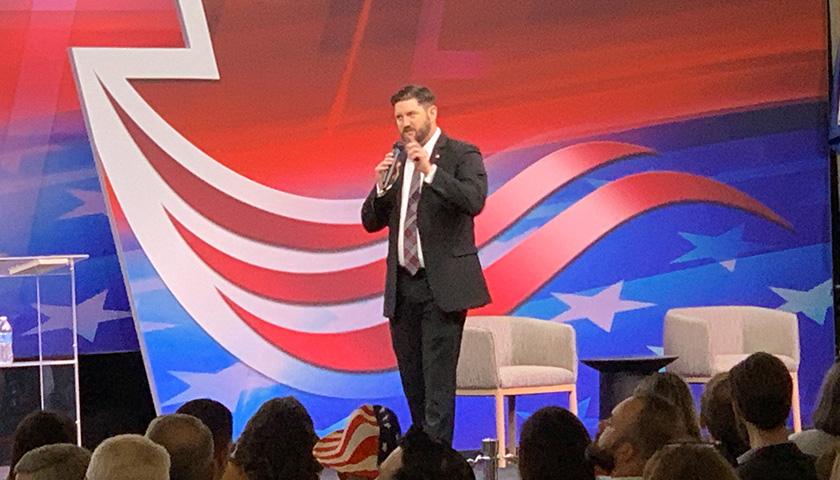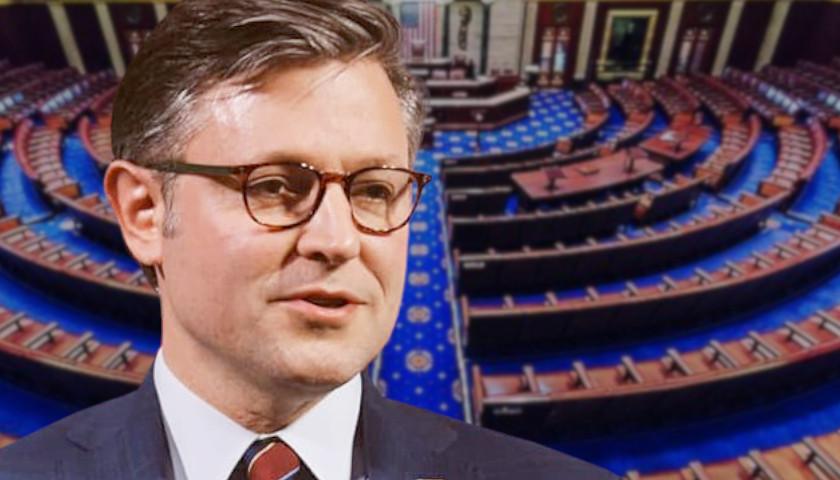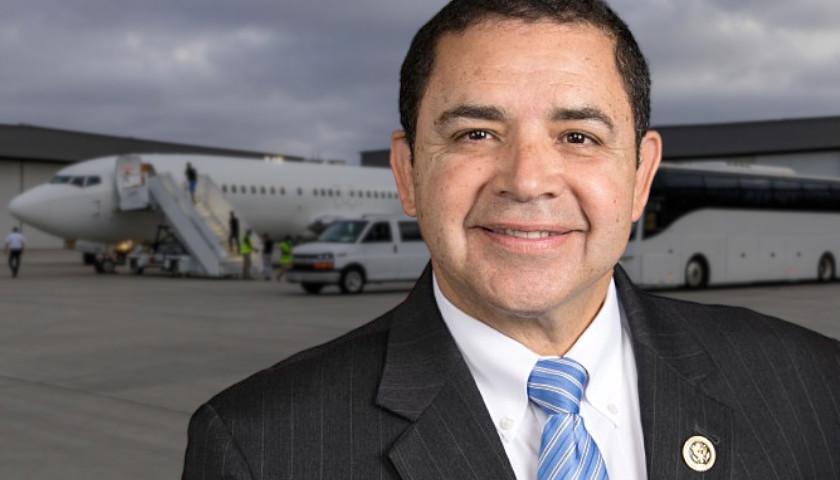CAMP HILL, Pennsylvania – At the Pennsylvania Leadership Conference (PLC) this weekend, a straw poll of right-leaning activists from across the Keystone State found election integrity tops their public concerns.
Cybersecurity Association of Pennsylvania President Scott R. Davis, who administered the PLC Straw Poll, told attendees at the Penn Harris Hotel west of Harrisburg that 38 percent of those who voted called election integrity the foremost issue facing the state General Assembly. Trailing that topic were the state budget (28 percent) and gun laws (6 percent). Eleven percent chose another issue.
Davis (pictured here), who served as a local judge of election for many years, said he concurred with those prioritizing the matter.
“I believe election integrity is one of the biggest issues that we have to come to and that we have to face moving forward,” he said.
Even more of the conference’s voting universe (39 percent) said they do not trust that elections in Pennsylvania are secure. Seventy-nine percent said they would back automatic audits of every election irrespective of results.
Poll participants, 179 in total this year, came largely from Pennsylvania as expected but individuals from nine other states also offered their input at the voting tablets set up near the conference room doors. The Pennsylvanians who voted came from 44 of the commonwealth’s 67 counties. The larger sex demographic was male (69 percent) and a plurality were aged 55-65 (23 percent).
Audience members applauded when Davis informed them, “We used voter ID! And you get one vote!”
He discussed attendees’ sentiment about a few other key issues, including school-district transparency, finding that 87 percent believe Pennsylvania K-12 administrations now share an insufficient amount of information about what their schools are teaching. Seventy-nine percent voted “strongly agree” when asked, “Should Public Schools in PA be required to post a detailed curriculum online?” Again, Davis said this is a major personal concern of his.
“I’m a parent of three,” he said. “I want to know more about what you’re teaching my kids. I try to stay active with my teachers, probably to the point that I annoy them.”
When it comes to the recent Commonwealth Court decision pronouncing the current funding system for primary and secondary education unconstitutional, participants were asked what they believed the state should do in response. Fifty-two percent said the most important element of a new funding plan would be providing more education alternatives including private ones.
Sixty-one percent of survey partakers said they preferred elected officials who “adher[ed] to conservative principles regardless of outcome” over those tending to “compromise when necessary to get things done.” A 43-percent plurality expressed satisfaction with the current policy direction of the GOP-run state Senate while two-thirds said they believe members of the Democrat-run state House are on the wrong policy track.
Other dominant opinions people registered included favoring electing state judges (46 percent) and opposing illegal-immigration and illegal-activity sanctuaries (79 percent). Public safety was an increasing worry for many at the gathering, 61 percent having said they think their local communities are less safe than they were five years ago.
Federal issues of highest import to those polled were the economy and inflation at 26 percent, government spending at 18 percent and immigration enforcement at 17 percent. Republicans running the U.S. House of Representatives garnered the approval of 60 percent of participants while the GOP minority in the Senate got only 32 percent expressing favor.
On Ukraine, 56 percent of those voting said they believe the Russian invasion of Ukraine poses a “significant national security risk” to the U.S. Sixty-two percent said they want U.S. to continue to provide funds and weapons to the Ukrainians, though the vast majority desired “more accountability” to come with that support.
Where the U.S. debt limit is concerned, a 46-percent plurality said they want the limit lowered and across-the-board spending cuts to be made.
Among the survey’s more unsettling results was a finding that 67 percent of those with children felt their kids would grow up to be worse off than them.
The opinions the right-wing activists at PLC put forth regarding Democratic U.S. Senators Bob Casey and John Fetterman were hardly surprising: Both got one-percent approval. President Joe Biden did no better, with only three attendees registering approval. Democratic Governor Josh Shapiro did only slightly better at eight percent.
Overall, grassroots conservatives seem happy with Republican state row officers, with 69 percent saying they like the work Treasurer Stacy Garrity is doing and 60 percent approving of Auditor General Tim DeFoor’s work.
Conference opinion on the state and federal Supreme Courts was a night-and-day contrast, with three-fourths admiring the generally conservative U.S. Supreme Court and just seven percent saying they approve of the majority-Democrat state court.
– – –
Bradley Vasoli is managing editor of The Pennsylvania Daily Star. Follow Brad on Twitter at @BVasoli. Email tips to [email protected].
Photo “Election” by Edmond Dantès.





